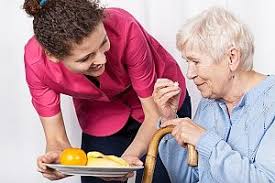If your elderly loved one has started to have difficulty in looking after themselves at home, perhaps through illness, frailty, lack of mental capacity or disability, and this has begun to put a huge strain on the rest of the family it could be time to look for outside help.
Whether they need special home adaptations or more regular personal care the first step is to obtain a care assessment for them to establish their support needs. Your loved one can arrange an assessment for themselves or you could do this for them providing you have their permission, or they are unable through incapacity to provide this. Contact your local authority adult social services department.
Your loved one is entitled to a care assessment whether their care is to be state or privately funded and whether they are to receive care in their own home or residential care.
What the Care Assessment Involves
A local authority social care professional will arrange a meeting which could be online or over the phone, or face to face if this is preferable. You and/or a carer will be allowed to support your loved one throughout the assessment. Every aspect of your loved one’s living arrangements, social and health requirements, and personal requirements will be looked at to decide what level of support is necessary. These include:
- Any physical or mobility difficulties and associated risks and what is needed to alleviate these. Can they move around the home safely?
- The skills and abilities of the person requiring care with regard to how they can manage around the home and when preparing food or drink. Can they manage their own personal care including toilet needs?
- The support network already in place if appropriate.
- The social aspect of their life including how they manage relationships with family, carers or health professionals. Their cultural background and religious beliefs and views will be taken into account.
- Their needs and wishes will be considered as well as those of any carers.
- Any GP or health professional involved in your loved one’s care may also be consulted to ensure a complete understanding of the support requirements.
Preparing for a Care Assessment
Your loved one should think beforehand about what they want in terms of support to communicate this as specifically as they can. For instance, if they think they’ll benefit from having someone to get them out of and into bed or help them to wash or take medication. Any adaptations which may be useful could be discussed such as handrails or a stairlift.
Things such as being able to make regular visits to a place of worship, to the shops or to visit a relative should all be mentioned and taken into account.
Offer your loved one as much support as they need during the assessment and step in if they’re struggling to remember points or having difficulty communicating.
Following the assessment, your loved one will be given a care plan and you can discuss this with them to decide on the next step. Whether you choose to get them home care services, or opt for care in a care home, you’ll have all the information you need to make the right decision for them.
